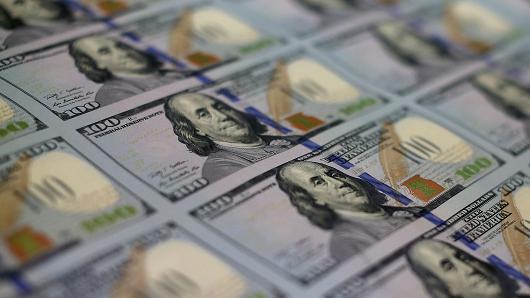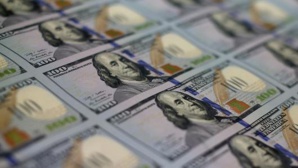The currency markets gained a showed some upward movement amid its correction period, whereby the dollar strength rose and the stock of Wall Street on Wednesday indicated the future with a firm start. Moreover, the European shareholders also managed to recuperate “some of their losses”. All together, the need to invest in yen or the likes, for “safe-haven currencies” was reduced significantly.
The Chinese central bank tried its best “to shore up sentiment” whereby pumping an amount of “$21.8 billion” into the currency market. The Central Bank of China pumped in money just after the day it reduced “interest rates” and loosened the reign of “reserve requirements”. However, analysts continue to tread cautiously keeping the “recent sell off” in mind which contributed “to a sharp rise in volatility”. Moreover, whether the U.S Federal Reserve was planning to tighten their policies on monetary matters, remained “still unclear”.
As per the market data, the Europe’s stock managed to retrieve some of its lost figures while the future of United States’ stock index remained “sharply higher”. Moreover, Reuters reports that:
“The euro was down 0.8 percent at $1.1420 EUR=, with the single currency also hurt by comments from a senior European Central Bank official.
“The dollar was trading 0.6 percent higher at 119.53 yen JPY=, having slumped to a 7-month low of 116.16 on Monday”.
Owing to the weakness of “some overseas economies” combined with the falling rate of commodity market, the risk of the “ECB missing its inflation target” has risen proportionately. Following the turmoil in the current market scenario, the yen and euro, both have been “underpinned” as “an unwinding of carry trades” trailed thereof.
The carry trades are “unwound” when the other markets are stressed amid rising volatility, as given its nature, the “low-yielding” currencies are traded in exchange of “riskier” ones in order to hit at “higher returns”. SocieteGenerale’s currency strategist, Alvin Tan is of the opinion that:
"The Chinese measures haven't really restored confidence. The market turmoil is not over. And under such risk averse conditions, the yen and the euro will continue to be supported.
"In the short term, the dollar is likely to underperform the euro and the yen. We also expect the Fed to be very cautious about raising rates."
It was only a fort night ago that dollar had a stronger grasp over yen by “125” units and the euro remained below “$1.10”. Soon after that the financial markets were swept over by a “widespread risk” which prompted the investors to “buy back the yen and euro”. Nevertheless, the debate over the interest’s increment by the Federal Reserve has gained momentum while the markets display “less than a 30 percent chance” of hike in the pricing by the month of September, although only two weeks ago the market was fifty percent higher than its present stand. According to reports generated by analysts from
Morgan Stanley writes:
"Dovish commentary has the potential to put the dollar under selling pressure with dollar/yen likely being the main victim as Japan's retail accounts have placed record bets on the prospect of rising rate differentials pushing dollar/yen higher. These hopes may now fade”.
Source(s): Reuters.com
http://www.reuters.com/article/2015/08/26/us-markets-forex-idUSKCN0QV01420150826
The Chinese central bank tried its best “to shore up sentiment” whereby pumping an amount of “$21.8 billion” into the currency market. The Central Bank of China pumped in money just after the day it reduced “interest rates” and loosened the reign of “reserve requirements”. However, analysts continue to tread cautiously keeping the “recent sell off” in mind which contributed “to a sharp rise in volatility”. Moreover, whether the U.S Federal Reserve was planning to tighten their policies on monetary matters, remained “still unclear”.
As per the market data, the Europe’s stock managed to retrieve some of its lost figures while the future of United States’ stock index remained “sharply higher”. Moreover, Reuters reports that:
“The euro was down 0.8 percent at $1.1420 EUR=, with the single currency also hurt by comments from a senior European Central Bank official.
“The dollar was trading 0.6 percent higher at 119.53 yen JPY=, having slumped to a 7-month low of 116.16 on Monday”.
Owing to the weakness of “some overseas economies” combined with the falling rate of commodity market, the risk of the “ECB missing its inflation target” has risen proportionately. Following the turmoil in the current market scenario, the yen and euro, both have been “underpinned” as “an unwinding of carry trades” trailed thereof.
The carry trades are “unwound” when the other markets are stressed amid rising volatility, as given its nature, the “low-yielding” currencies are traded in exchange of “riskier” ones in order to hit at “higher returns”. SocieteGenerale’s currency strategist, Alvin Tan is of the opinion that:
"The Chinese measures haven't really restored confidence. The market turmoil is not over. And under such risk averse conditions, the yen and the euro will continue to be supported.
"In the short term, the dollar is likely to underperform the euro and the yen. We also expect the Fed to be very cautious about raising rates."
It was only a fort night ago that dollar had a stronger grasp over yen by “125” units and the euro remained below “$1.10”. Soon after that the financial markets were swept over by a “widespread risk” which prompted the investors to “buy back the yen and euro”. Nevertheless, the debate over the interest’s increment by the Federal Reserve has gained momentum while the markets display “less than a 30 percent chance” of hike in the pricing by the month of September, although only two weeks ago the market was fifty percent higher than its present stand. According to reports generated by analysts from
Morgan Stanley writes:
"Dovish commentary has the potential to put the dollar under selling pressure with dollar/yen likely being the main victim as Japan's retail accounts have placed record bets on the prospect of rising rate differentials pushing dollar/yen higher. These hopes may now fade”.
Source(s): Reuters.com
http://www.reuters.com/article/2015/08/26/us-markets-forex-idUSKCN0QV01420150826






